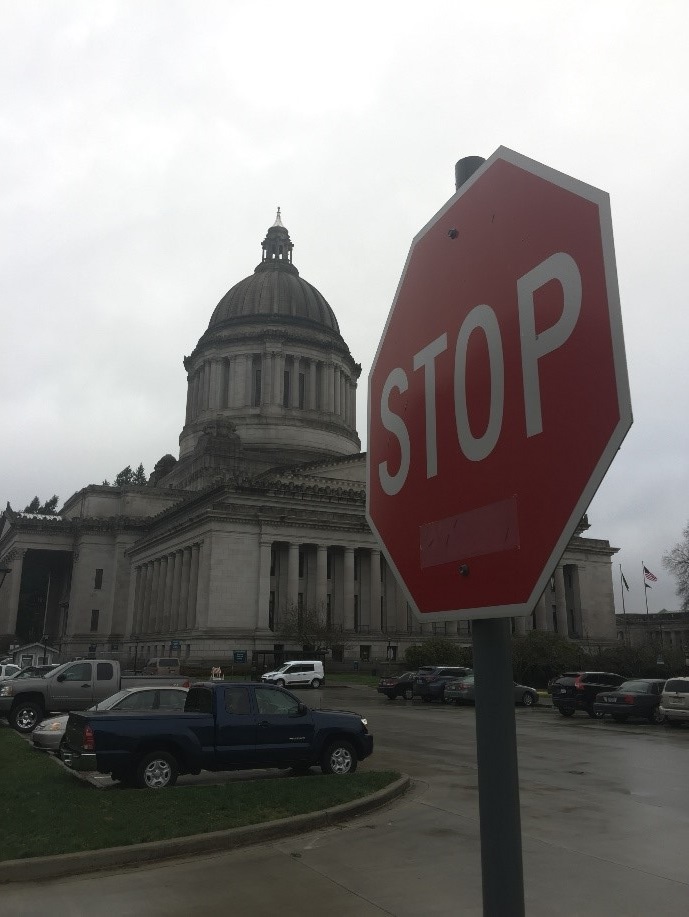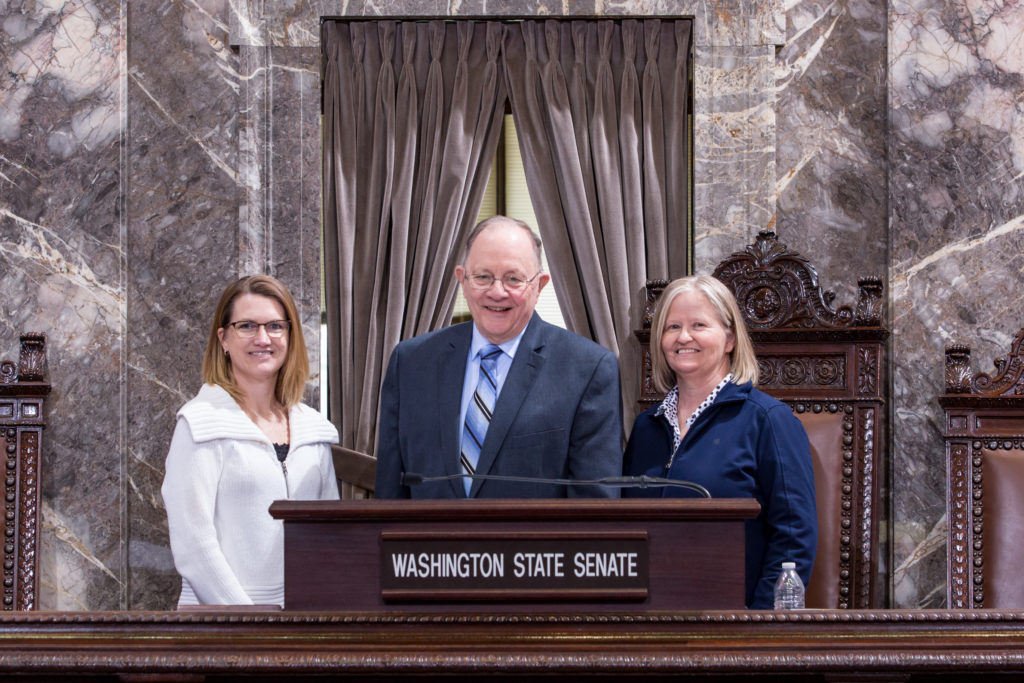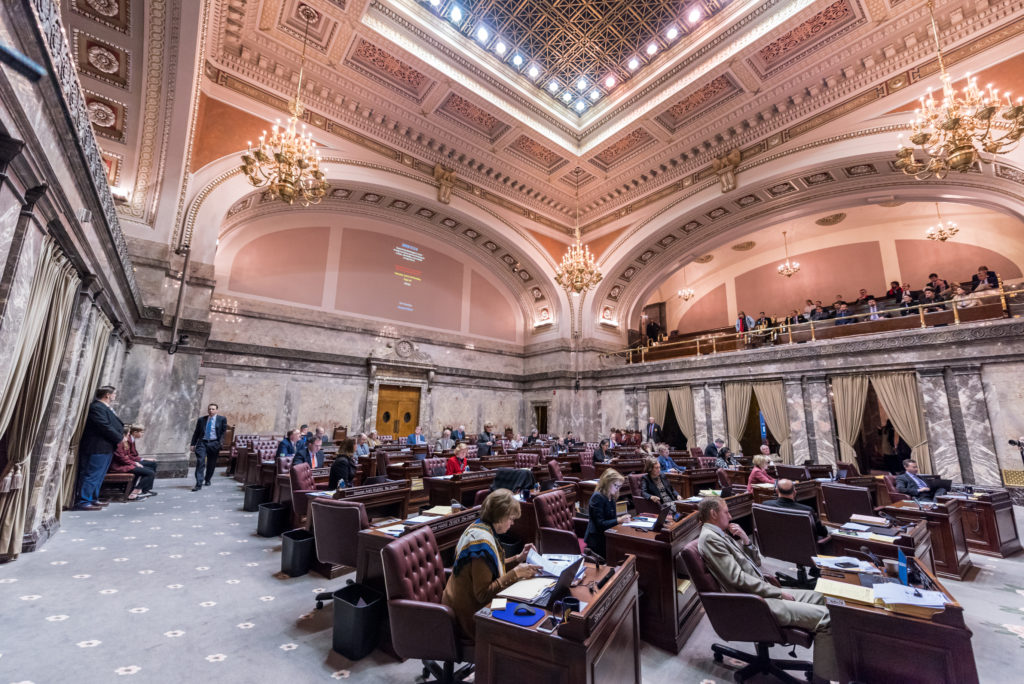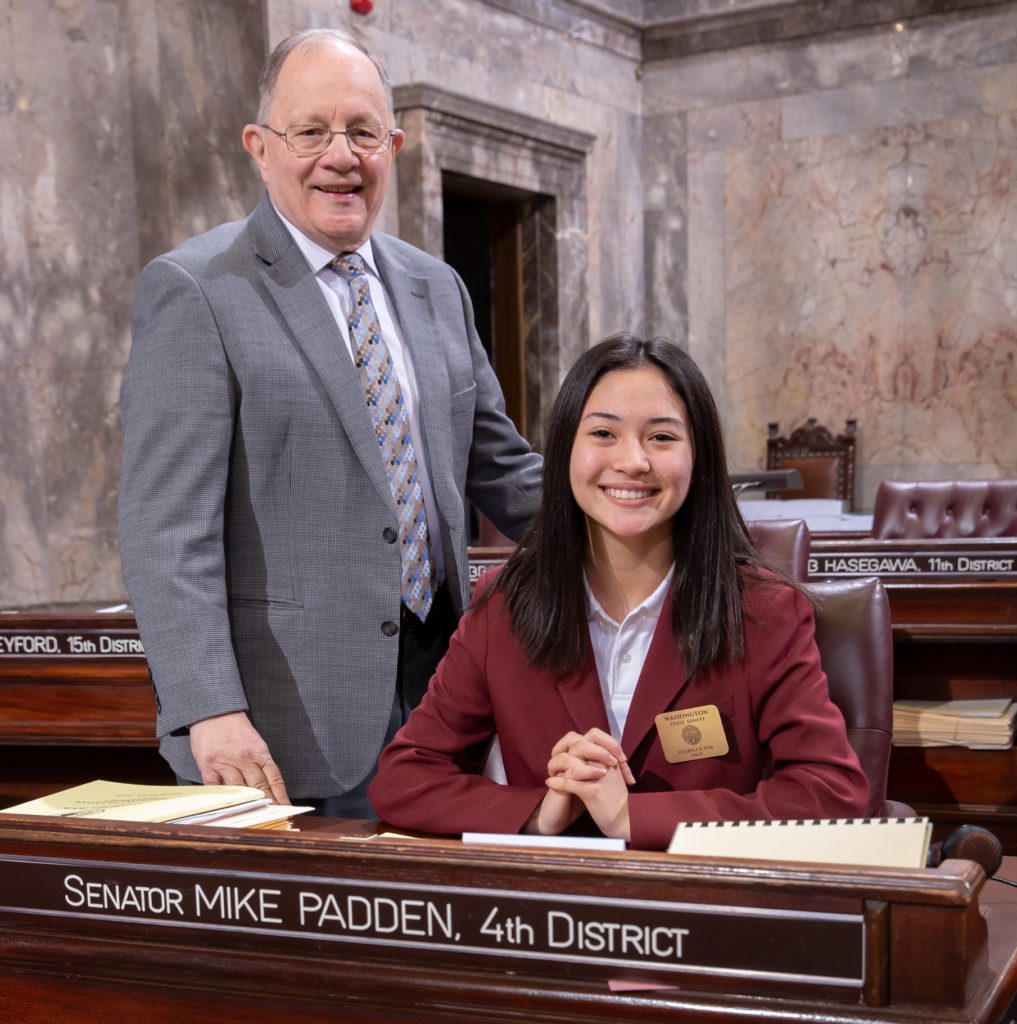The following newsletter was sent to Sen. Padden’s subscribers March 14, 2019. To subscribe to Sen. Padden’s newsletters, click here.
Legislature runs wild at mid-session cutoff
DUI bill denied vote in Senate, but fight continues
Dear Friends and Neighbors,
If you’ve ever wondered what our state would be like if Seattle made all the decisions, you just have to look at this year’s Legislature. You might think the Seattle City Council has moved into the state Capitol. On Wednesday, the Legislature faced an important deadline, for passage of bills that originated in each chamber. Let’s not get too technical about it – the important thing is that we finally can see what is likely to pass and what isn’t.
It’s time to get spooked. The direction is clear. One-party control of the Legislature has enabled westside urban lawmakers to advance sweeping proposals that would stifle business and job creation, expand the power of government and impose Seattle values on the entire state. Where Washington voters have expressed a contrary opinion, their views have been ignored. Because Republicans are in the minority, these proposals have gone sailing from the House and Senate floors.
Many of these bills are worrisome in themselves, but the trend bodes especially ill for the big debate to come. Over the next six weeks we will be considering proposals for a massive expansion in state spending, and big tax increases to cover it. Clearly this will be quite the battle.
Meanwhile, a major DUI bill I have sponsored failed to get a vote in the Senate before the 5 p.m. Wednesday deadline. This was a disappointment, but we will be working to revive this measure in the budget. This and more in this week’s newsletter.
Sincerely,
Senator Mike Padden
Troubling trends at mid-session
 Every year we make a list of the bills that lived and died at cutoff. What remains in play this session is breathtaking – a radical agenda that aims to remake our economy and society, without regard for consequences. Many of these bills we can expect to see on the governor’s desk sometime soon.
Every year we make a list of the bills that lived and died at cutoff. What remains in play this session is breathtaking – a radical agenda that aims to remake our economy and society, without regard for consequences. Many of these bills we can expect to see on the governor’s desk sometime soon.
They include:
- Mandatory sex-education programs for all public-school students, from kindergarten on up.
- Giving environmental activists the ability to dictate state environmental regulation, without public input.
- Making it illegal for Donald Trump to appear on the 2020 Washington ballot, unless the president voluntarily releases his personal income tax forms.
The list is so long it makes more sense to talk about the general direction. The most-troubling trends include:
Gas prices – going up! Our westside urban colleagues are fixated on raising the cost of motor fuel, in the name of combatting climate change. Never mind the fact that Washington voters said no to this idea last fall, when they rejected Initiative 1631, the second carbon-tax initiative they have defeated in a row. Various bills enact bits and pieces of this initiative, and if all pass, the effect would be the same. Other bills enact carbon taxes and cap-and-trade programs. Higher fuel prices would have a severe impact on working families and those of low and fixed incomes, on business and job creation, and on Washington’s competitiveness. We can pay for carbon-reduction programs without hurting the people of this state – we have proposed such programs in the past. Unfortunately, many in the majority are determined to make fuel more expensive, regardless of the misery it will cause. The odd thing? None of these bills would make a difference in climate.
Getting soft on crime. A number of proposals this session would relax prison sentences and encourage early releases. The argument is always about cost and prison crowding. But the real motivation is a reluctance to keep criminals behind bars. These bills threaten the tough anti-crime measures of the ‘90s, like Three Strikes You’re Out, which have done so much to reduce crime rates. Advocates of these bills say crime is no longer a top public concern. We’ll find out if the public agrees with them, when debate begins in earnest on the budget.
Ending distinctions between citizens and illegal aliens. A number of bills erase distinctions between law-abiding citizens, legal residents and those who choose to break the law by entering the country illegally. Bills this year would prohibit local law enforcement agencies from cooperating with federal immigration agents, and would forbid “discrimination” against those who violate immigration laws. These bills are part of an ideological protest against longstanding laws regarding immigration – a protest that properly belongs before Congress. All the Legislature can do is diminish respect for the law, and make it more difficult for law enforcement to do its job.
DUI bill misses vote in Senate, but revival a possibility
 Among the hundreds of bills that failed to win passage before the deadline is a measure that could make a real difference in the number of traffic deaths due to impaired driving. Senate Bill 5299, which I have sponsored, would extend the “look-back” in DUI cases to 15 years. This means courts would be able to consider any conviction for DUI over the last 15 years in issuing sentences, rather than the 10 years permitted currently. Many states don’t limit things this way – it’s the lifetime record that counts. This is the reason we hear so often in this state about offenders who have been arrested and convicted time and again, without going to prison – like the King County man arrested last month on his eighth DUI charge.
Among the hundreds of bills that failed to win passage before the deadline is a measure that could make a real difference in the number of traffic deaths due to impaired driving. Senate Bill 5299, which I have sponsored, would extend the “look-back” in DUI cases to 15 years. This means courts would be able to consider any conviction for DUI over the last 15 years in issuing sentences, rather than the 10 years permitted currently. Many states don’t limit things this way – it’s the lifetime record that counts. This is the reason we hear so often in this state about offenders who have been arrested and convicted time and again, without going to prison – like the King County man arrested last month on his eighth DUI charge.
This bill has strong bipartisan support, and we were hoping right up until the final minutes of Wednesday’s Senate session that this bill would receive a vote. Unfortunately, our colleagues ran out the clock.
This doesn’t mean the proposal is dead. In Olympia, there are a dozen ways to revive a bill if the will is there. Many on both sides of the aisle recognize the importance of this measure, and we’re not giving up.
You can read more about the deadline-day effort to pass the bill in this story from KIRO radio in Seattle.
Senate passes human trafficking bill
A bill that would make it easier to prosecute child sex-trafficking cases cleared the Senate this week on a unanimous vote. Senate Bill 5885 allows children’s statements made outside of court proceedings to be utilized in prosecutions. We already provide an exception to the “hearsay rule” in cases involving children under ten, and this would extend it to age 15 in certain specific cases. This measure was backed by the Washington Association of Prosecuting Attorneys and Shared Hope International, a Washington, DC-based organization that battles human trafficking. Former congresswoman Linda Smith, now Shared Hope’s president, testified in committee, “When you think about these children sitting and facing their accusers, it is like another form of abuse.”
You can read more about this bill in this story from KEPR-TV in the Tri-Cities.
Ending discrimination on organ transplants
In life-and-death decisions about who gets organ transplants, the developmentally disabled often get the short end of the stick. Senate Bill 5405 prohibits transplant denials for the sole reason of disability. Though federal law already prohibits discrimination, seven states have already passed laws of their own, due to high-profile cases of denial to individuals with Down Syndrome and other physical and mental impairments. We shouldn’t wait for it to happen here. This bill is a recognition that all lives have value. It also passed the Senate unanimously.
You can read more about this issue in this story from the Washington Post.
Honoring the Greater Spokane County Meals on Wheels program

At the rostrum with Sen. Padden are Joey Yonago of the Greater Spokane County Meals on Wheels senior nutrition program (left) and food services director Jerri Horton.
One of a lawmaker’s more pleasant duties is to introduce resolutions honoring organizations that make a difference in the community. Few organizations fit that description better than the Greater Spokane County Meals on Wheels program. Every day volunteers serve more than 1,000 meals to seniors and vulnerable adults at a dozen locations. They also deliver to homes, from Elk and Deer Park on the north to Rockford and Fairfield on the south, from Liberty Lake on the east to Medical Lake on the west. Over the last 47 years this program has proven its value, providing not just food but human contact for many seniors and vulnerable adults who live in isolation. It was my privilege to introduce Senate Resolution 8626 and speak for it on the Senate floor Monday. The volunteers and staff of this program deserve our highest commendation for their outstanding effort.
Thanks to Izabella Yim for serving as a Senate page!
This week it was my honor to host Izabella Yim as a Senate page. ‘Bella,’ as she likes to be called, is an 8th grader at St. Mary’s School in Spokane Valley. She is 14 and lives with her mother Svetlana Shur in Liberty Lake.
The Senate page program gives youths age 14 to 16 a chance to see their Legislature in action. Students deliver messages and correspondence, monitor floor debates and attend a special page school. If you know of a young person who would appreciate an opportunity to participate in the Senate page program, more information is available here.
Contact us!
We’re in Olympia for the duration. If you have a question or concern about state government, please do not hesitate to contact our office. We are here to serve you!
Phone: (360) 786-7606
Street address: 106 Irv Newhouse Building, Capitol Campus, Olympia, WA 98504
Postal address: PO Box 40404, Olympia, WA 98504
Email address: Mike.Padden@leg.wa.gov













